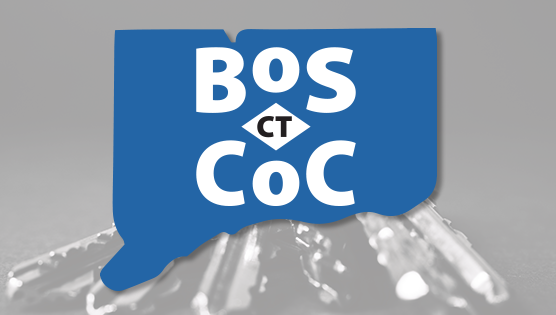About CTBOS

Mission
Vision
What is a Continuum of Care?
History of CT BOS
What Do We Do?
Geographic Area
CT BOS plans and oversees use of HUD CoC funding in the following localities: all Cities and towns in the planning regions of Capitol Region, Lower Connecticut River Valley, Naugatuck Valley, Northeastern CT, Northwest Hills, South Central, Southeastern CT.
Funding
CT BOS receives over $67 million in annual funding for 108 projects that include coordinated entry, joint transitional housing / rapid rehousing, permanent supportive housing, planning, rapid rehousing, transitional housing, and street outreach.
Collaboration
CT BOS identifies and addresses needs of people experiencing homelessness and those at-risk for experiencing homelessness utilizing not only HUD dollars, but also mainstream resources and other sources of funding. This is often achieved through the work of the local planning bodies that are active in many of the covered regions and that help guide the work of CT BOS. Consistent with the CoC Program Interim Rule, the CT BOS Steering Committee serves as the Continuum of Care Board.
Who Leads the CT Balance of State
The Steering Committee manages a year-round planning effort that includes:
- Establishing policies and plans toward ending homelessness in the CT BOS region
- Analyzing information to determine needs of people experiencing homelessness in the region
- Establishing priorities for how to use funding made available by HUD
- Setting performance standards and evaluating projects funded through CT BOS
- Monitoring project compliance with HUD and CT BOS requirements
- Offering training and technical assistance to support agencies’ efforts to provide the highest quality services
- Coordinating with other systems and programs serving people experiencing homelessness
- Educating the community about homelessness
